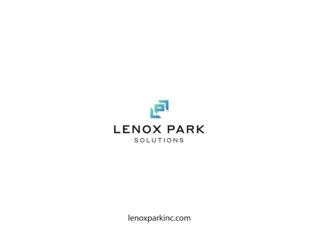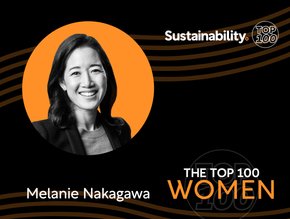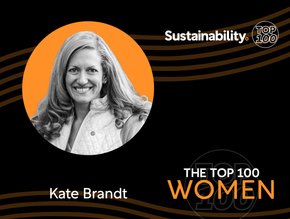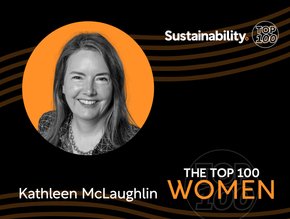Lenox Park builds asset manager diversity

Asset managers as a corporate cohort have seen very little diversity over the years, reporting in one study that only 1.4% of total United States-based assets under management is managed by diverse-owned firms as of September 2021, and patience with such a glaring disparity is running out.
Lenox Park Solutions is working to change that and through its cloud-based platform, informed by a stream of data, analysis and insights, it offers asset allocators the ability to assess the DEI impact of their capital when allocated to asset managers. The platform currently boasts over 2200 registered organisations, 1,200 asset managers, and US$6.3 trillion in assets under management represented.
Founder and CEO Jason Lamin and COO Amber Kizilbash spoke at length with BizClik Media in a broad-ranging interview.
“If you ask the average allocator of capital ‘How did you find your best managers?’” says Founder and CEO Jason Lamin, “The likelihood is that they found that manager through their peer group, somebody in their network of peers made the suggestion.” Addressing underrepresentation of various groups, including women and ethnically diverse groups, comes through creating an unbiased solution for potential partners to find each other.
Part of that solution is RoundTables, a platform for connecting and networking with other asset managers to find each other and collaborate on deals. Lamin says “RoundTables was built on a premise that we’ve found to be quite accurate: that like-minded decision-makers tend to collaborate with each other and prefer to knowledge-share among their peers, so we created a tech-enabled platform that is discreet and empowers those individuals to collaborate with each other in a safe space much more efficiently.”
“Our thinking is that once we empower these individuals with the ability to collaborate with each other discreetly and efficiently, we’re uniquely positioned to complement that collaboration with very smart data science, metric-driven insights, recommendations. And it’s working.”
Driving diversity and inclusion through key partnerships
Partnerships with major investment players have been crucial to Lenox Park’s growth. One key partner has been JPMorgan Chase, which joined up with Lenox Park as a Founding Member to support several of its initiatives for greater DEI impact across the organisation, and it is a partnership that is expected to deliver double bottom-line results over time.
“We are generating value for them,” says Chief Operating Officer Amber Kizilbash. “But we are also leveraging the broad spectrum of services and partnerships they can provide to a company like ours at this phase in our growth cycle and the phases ahead of us. We will continue to learn more about other parts of the JPMorgan Chase enterprise, and how we can efficiently partner with them and build a long term, mutually productive and sustainable partnership.”
Lamin says there are many layers to “the importance of a partnership like the one we have with JPMorgan. One is the extraordinary credibility that it brings to an organisation like ours by being able to organise ourselves so that we can legitimately compete and become a vendor for a global enterprise like JPMorgan Chase.
“We're very proud of that affirming fact. But it's not lost on us: the intentionality that it takes from an organisation like JPMorgan to engage a firm like ours and to deconstruct some of the barriers that exist. It doesn't happen without extreme levels of intentionality from the board level, to the CEO and executive management teams.
That intentionality, for Lenox Park, is what is setting the stage for an exciting new era in diversity amongst asset managers.
““At the U.S. National level there’s about US$70 trillion wealth that is going to be transferred to the next generation by 2045,” says Kizilbash. “When you think about the next generation of leaders that are coming from this diverse millennial economic power and consumer base, research suggests that no other generation has been more focused on impact, and Inclusion is one of the single most important values for them. This segment of the population will also comprise 75% of the world’s total workforce by 2025.”
“In the same vein, we’re also supremely focused on how inclusive cultures affect access to the very best talent. They look around the organisation, and if it doesn't resemble their peer group, their clients, their tribe, then it's not their space. And rightly so, because they look around the room and ask what the ownership and the leadership look like. If it doesn't resemble you, it’s nearly impossible to project your path to being successful and fulfilled here down 5 years and 10 years.”






